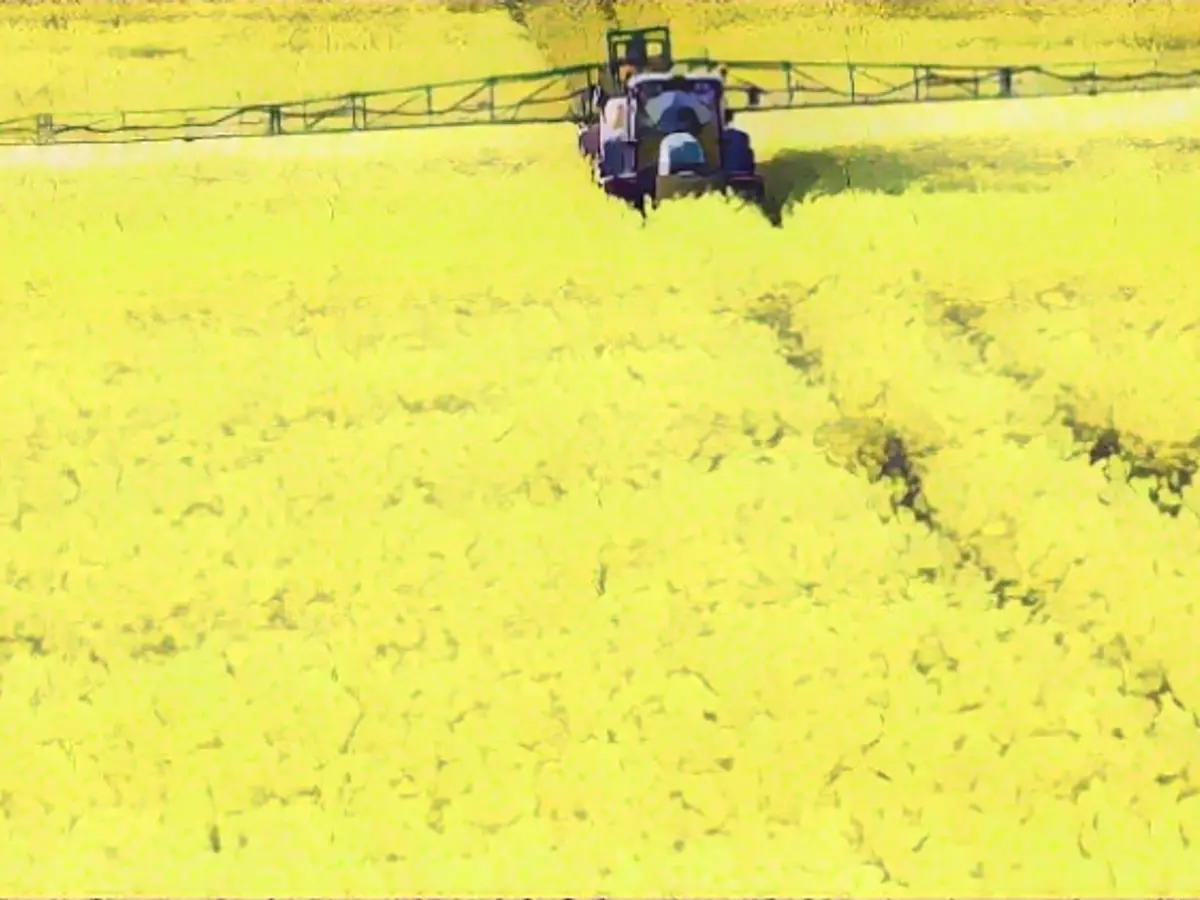EU Parliament overturns law on limiting pesticides
By the end of the decade, significantly fewer pesticides should be applied in the EU. Farmers and conservatives are up in arms against the EU Commission's law. However, following the massive weakening of the plans, the package no longer has a majority. A possible new attempt is unlikely.
Farmers in the EU can still plan to use pesticides on their fields. In Strasbourg, the European Parliament overturned a law by a narrow majority that provided for a reduction in the use of pesticides by half by 2030. The parliament rejected further negotiations. It was a "black day" for nature and for farmers in Europe, said the responsible rapporteur Sarah Wiener from the Greens. The majority of MEPs put the profits of large agricultural companies above health and the environment. Agricultural associations, on the other hand, welcomed the decision.
"At last", the Parliament recognizes that pesticide regulation is "poorly adapted, unrealistic and without funding", explained Christiane Lambert, President of the European farmers' association Copa-Cogec. Parliament had rejected "impractical requirements that would have jeopardized the existence of many farms", said the President of the German Farmers' Association, Joachim Rukwied.
Law watered down by motions
The law originally envisaged reducing the use of pesticides in the EU by half overall by 2030. The Commission had proposed a ban on pesticides in particularly sensitive areas such as urban parks, schools and parts of Natura 2000 sites. Conservative MEPs in particular warned of severe restrictions for farmers. "We must find solutions together with and not against agriculture," emphasized CDU MEP Norbert Lins. In particular, a ban on pesticides in so-called sensitive areas was "not acceptable".
Following numerous amendments tabled by the Conservatives in Parliament, the law had already been significantly weakened before the final vote. Among other things, the date for reducing the use of pesticides was postponed by five years, binding targets for the Member States were weakened and the so-called sensitive areas were removed from the draft.
Commission could make a new proposal
The law has been "torn apart beyond recognition", explained Green MEP Jutta Paulus. The Greens, the Left and parts of the Social Democrats and Liberals therefore voted against the draft in the end. "The Conservatives have once again sabotaged the Green Deal in the European Parliament," explained SP environmental expert Delara Burkhardt.
The environmental organization BUND spoke of a loss "for people and nature as well as food security". After the announced re-approval of the weedkiller glyphosate last week, the decision against the pesticide law was "another setback", explained BUND chairman Olaf Bandt.
Theoretically, the negotiations could still continue if the EU agriculture ministers make a proposal on the pesticide law. If this does not happen, the Commission would have to make a new legislative proposal. However, both are considered unlikely.
The EU Commission initially proposed limiting pesticide use in sensitive areas like urban parks and schools, but this was met with opposition from conservative MEPs. In the EU Parliament, the law aimed at reducing pesticide usage by half by 2030 was significantly weakened before approval, leading to postponement of the date, weakening of binding targets for member states, and removal of sensitive areas from the draft.
Despite the watered-down version, the EU Parliament's approval of the modified law was criticized by environmental organizations like BUND, as it was seen as prioritizing agricultural company profits over health and environmental protection.
Source: www.ntv.de








